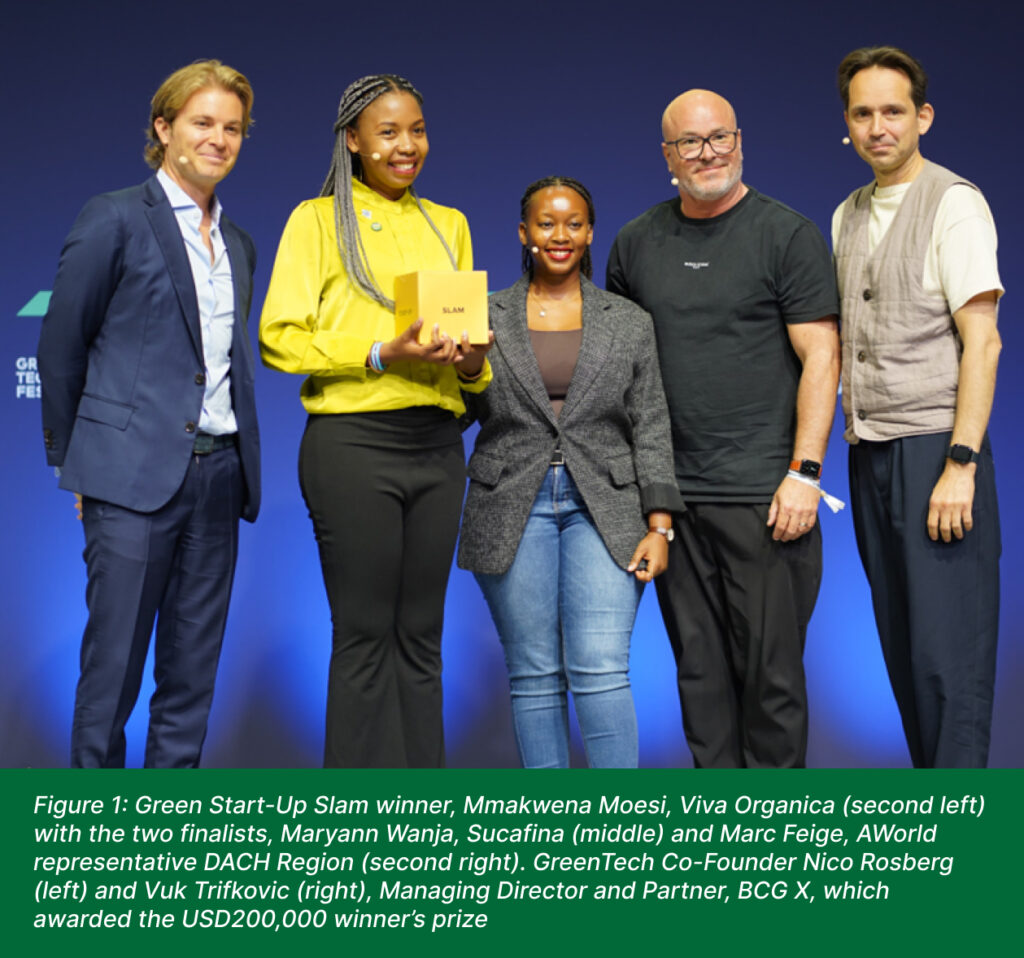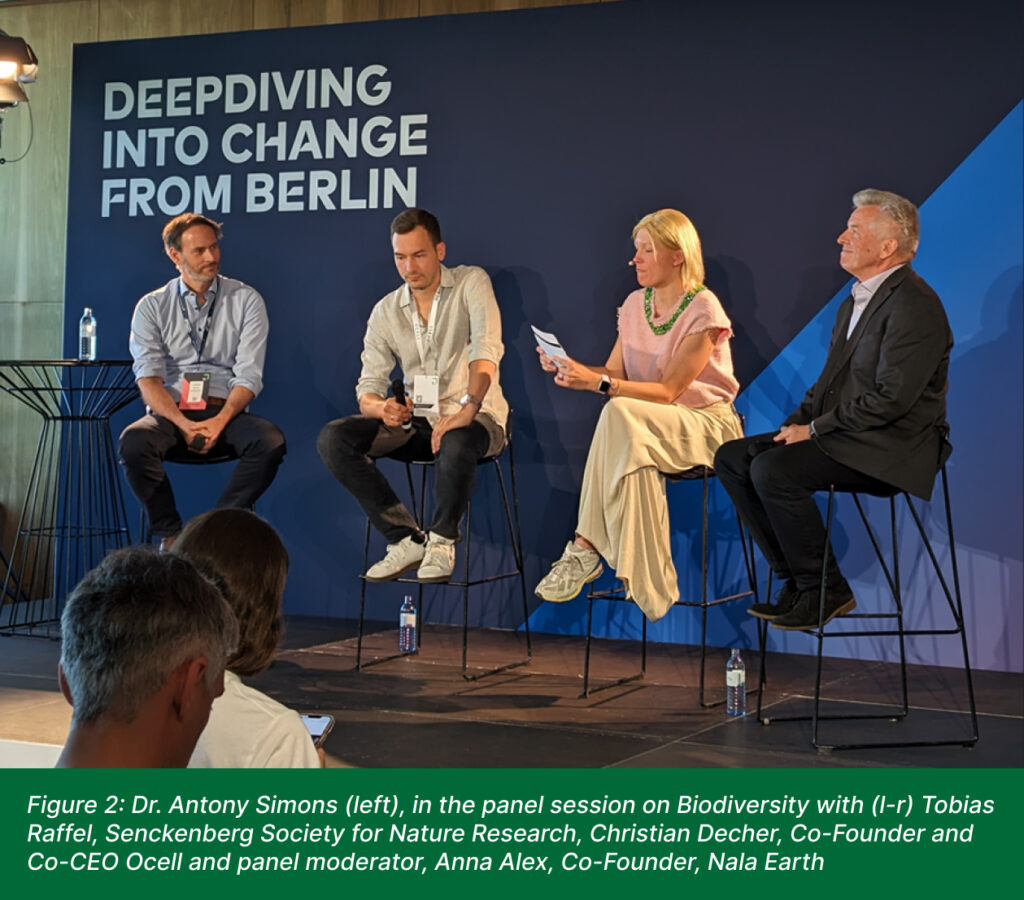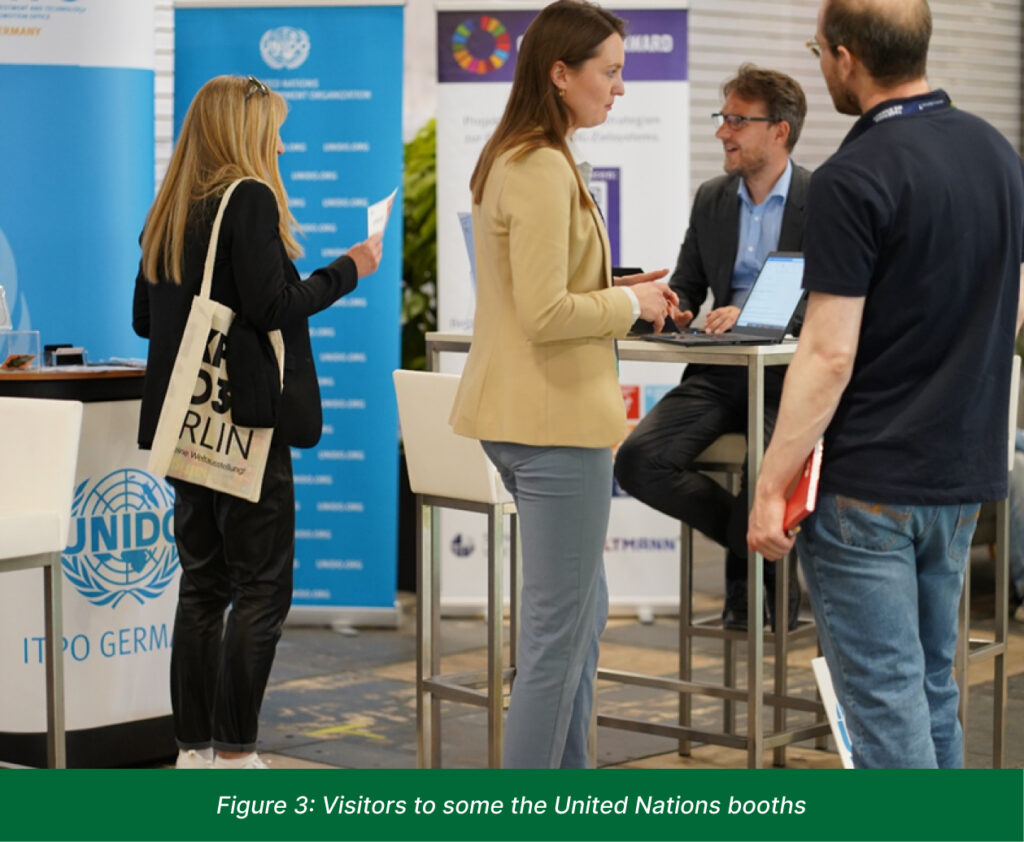The land restoration industry: Fact or Fiction?


It’s not our typical event and we were not in it to win awards. Our objective in participating at the GreenTech Festival in May in Berlin, Germany, was to pitch land restoration to the private sector community developing green technologies. GreenTech, in particular, has a special interest in sustainable development, even if they first charted their paths in transport and then energy.
The outcome of our participation surpassed expectations. One of the Start-Ups featuring land restoration won the overall competition and an award prized at USD200,000. One of the Start-Ups was subsequently approached by an Angel investor for partnership.
The wins reinforce a growing perspective that a restoration industry is viable. Start-Ups in land restoration are not only viable, but green investors are now on the look out for promising projects to investing in. Early entrants in this industry will benefit massively.
The United Nations is an intergovernmental platform, thus, engaging the private sector is often beyond our comfort zone and poses a huge reputational risk through greenwashing – a major point of discussion at the Festival. But engaging with the private sector is not an option for G20 Global Land Initiative (GLI).
It is mandated by the Group of Twenty (G20) Leaders, who consider private sector engagement a critical element in achieving their ambition: reduced land degradation by 50 percent by 2040.
That is how the GLI team of four ended up at the GreenTech Festival.
Dr. Antony Simons, GLI Senior Expert on Land Restoration, spoke as a panelist at a thematic session titled, Biodiversity – the Next Big Thing for Business and Nature?

Watch the session here
and ReadTony’s take of the session
Two of the G20 GLI Youth Eco-preneurs were invited to showcase what a business outfit in land restoration looks like. Ms. Mmakwena Moesi, chief executive of Viva Organica (Botswana) and Mashrur Shurid, chief executive of iPAGE (Bangladesh), presented their Start-Ups.
Shurid was also invited to speak at the Main Stage on the topic, AI for the Common Good.
Watch it here:
Moesi and Shurid were two of the top finalists of the land restoration category of the 2023 International Trade Organization’s Youth Ecopreneur (Ye!) Awards, which G20 GLI co-sponsors.
The competition for Shurid and Moesi was fierce at the Festival’s Green Start-Up Slam. Our ecopreneurs were well prepared, but as with many of their competitors, winning was not the primary aim.
Rather, as one of the speakers put it, they wanted to demonstrate that “you can do good and do well.” Profit does not have to trump sustainability.
Watch round one of the Start-Up Slam for Moesi
and Shurid,
and Moesi’s final round.
When Moesi’s Viva Organica won the first round, excitement and anxiety hit us suddenly. And then she won the final pitch to take home an unexpected USD200,000 worth of consultancy services from the highly regarded Boston Consulting Group X.
BCG X is made up of technologists, scientists, programmers, engineers and human-centered designers who “bring together advanced tech knowledge and ambitious entrepreneurship to help organizations launch their next big bets and enable innovation at scale,” according to their website.
The announcement by BCG X was a pleasant surprise. Until then, the organizers had not made it public that a financial award was on the cards. And our achievements did not end there.
As part of the preparations for the mission, we inquired from the organizers and received confirmation that investors were likely to be among the participants. At least, they had participated in past Festivals. Thus, without sharing too much detail, both Shurid and Moesi included an ask in their pitches.
After their sessions, many participants came to congratulate them for their courage, work and presentations. Some asked for their contacts to stay in touch. And stay in touch they did.
One of these “participants” has since expressed interest in being an Angel investor to support one of the Start-Ups.
Typically, Angel investors are wealthy individuals who finance small businesses that are in their early stages of development to help them grow. In return for the ‘loan’, the investor is allocated an agreed amount of ownership (known as equity) of the company. When the company starts earning profits or is listed on a stock exchange, the investor receives returns that are equal to the equity they hold in the company.

Another welcome surprise of the Festival was the support competitors received. One of the finalists is a Start-Up in the coffee industry. After her pitch, someone in the audience offered to introduce her Start-Up to a multinational coffee trading company that was at the venue, and supports sustainable coffee production.
GreenTech Festival began with a focus on the transport and energy sectors, with sustainable development, and especially climate change, as a key area. It has since brought in the food and fashion sectors. This year, it added biodiversity to their topics and showcased land restoration at the most recent event.
Majority of the audience and many of the speakers were young people from developed countries. Their appreciation for the innovations pitched in agriculture signals a major – and welcome – turn in demand for sustainably produced goods.
Without a doubt, the new land restoration economy holds a lot of promise. What once appeared as fiction is quietly gaining ground as fact.




